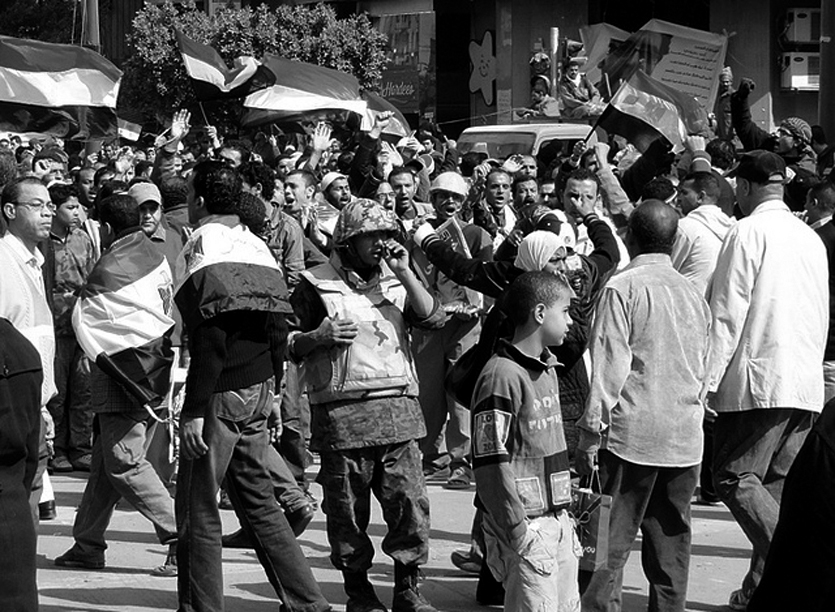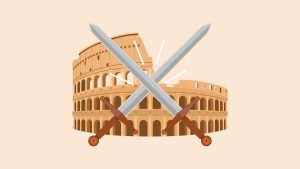 Since most Americans can remember, the Middle East has been an area torn in unrest. For this reason, when CNN began reporting on the protests in Egypt, most Americans remained skeptical and unconcerned with what was actually going on.
Since most Americans can remember, the Middle East has been an area torn in unrest. For this reason, when CNN began reporting on the protests in Egypt, most Americans remained skeptical and unconcerned with what was actually going on.
Despite the fact that Egypt is actually located in Africa, and not the Middle East, I will admit that I myself attributed these protests to “just another un-resolvable issue” and looked the other way. Stories From Tahrir highlights exactly why Americans should be concerned with these protests; as the world continues to become a smaller place due to globalization, technology is leveling the playing field for Egypt and others like it to make the changes their citizens really want to see. Our support will surely become increasingly necessary for our own national interest as this once oppressed nation continues to make strides into a brighter future.
When I conjure up an image of a protestor in my head, caricatures of uneducated hippies with a sign in one hand and a joint in the other still seem to float to the top of my mind. This documentary, however, was focused on interviews with protestors who are professionals such as lawyers, engineers and even a heart surgeon. This legitimized them as credible citizens who could provide factual information about the protests and would have little to no ulterior motive for giving the answers they did. One of my first thoughts was, how did all these individually successful people find out about this protest and how did they become so darn organized?
The answer was technology, which is yet another thing that we as Americans take for granted. In reality, without technologically powered resources like the Internet, it would have been virtually impossible to gather and organize that many people (never mind accredited professionals) in one place. Such an incredible amount of educated people with such a solemn and driving passion is a recipe for success all on its own. Our support (economically and militarily) towards these capable, democracy-focused professionals should be top priority, seeing as we share common ideals. When it comes to developing our own national interest by extending the olive branch, it is important “to promote economic growth and political openness by extending free trade and a stable international monetary system to all committed to these principles [of democracy],”as stated by Condoleezza Rice.
Being that Egypt is becoming comparatively more and more connected with these technological resources, it makes sense that now more than ever these protests are gaining attention and speed. Not to mention the plethora of ideas about democracy, the Arab Spring and various other protest success stories being uncovered daily by inquiring Egyptians on the World Wide Web. The film also made many comparisons to the Occupy Wall Street movement. Many of the people interviewed stated that the strides made by the American movement were a primary source of inspiration for their own protests thousands of miles away in Tahrir Square.
Most remarkably, the majority of the protestors on Wall Street had no idea that their actions would indirectly contribute to an even larger movement on the other side of the world. This direct example of globalization truly encompasses how interconnected the world has become via technology. Using this interconnectedness to our advantage, and heeding Rice’s words about the regimes “left on the side of the road [of democracy],” it is in our best interest to support the opposition and remove the regime in favor of one that would be more beneficial to our own.
With this type of inspiration and capability, mutual distain for the oppressive Egyptian regime finally took a more tangible form than what had been accomplished before. Americans can no longer interpret every news headline about the Middle East as trivial because with our support towards the revolutionaries, “America can exercise power without arrogance and pursue its interests without hectoring and bluster. When it does so in concert with those who share its core values, the world becomes more prosperous, democratic, and peaceful. That has been America’s special role in the past, and it should be again as we enter the next century,” said Rice.
This is a transitional time for Egypt, and with help from America and the continued expansion of technology in the region, we can expect to see a nation that will soon be making great strides both socially and economically.
















Be First to Comment